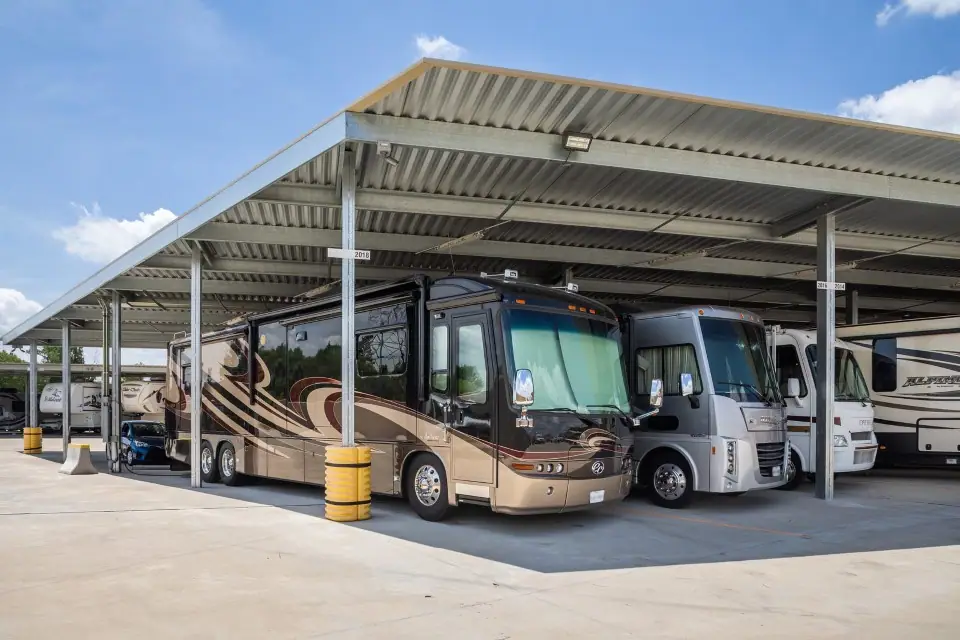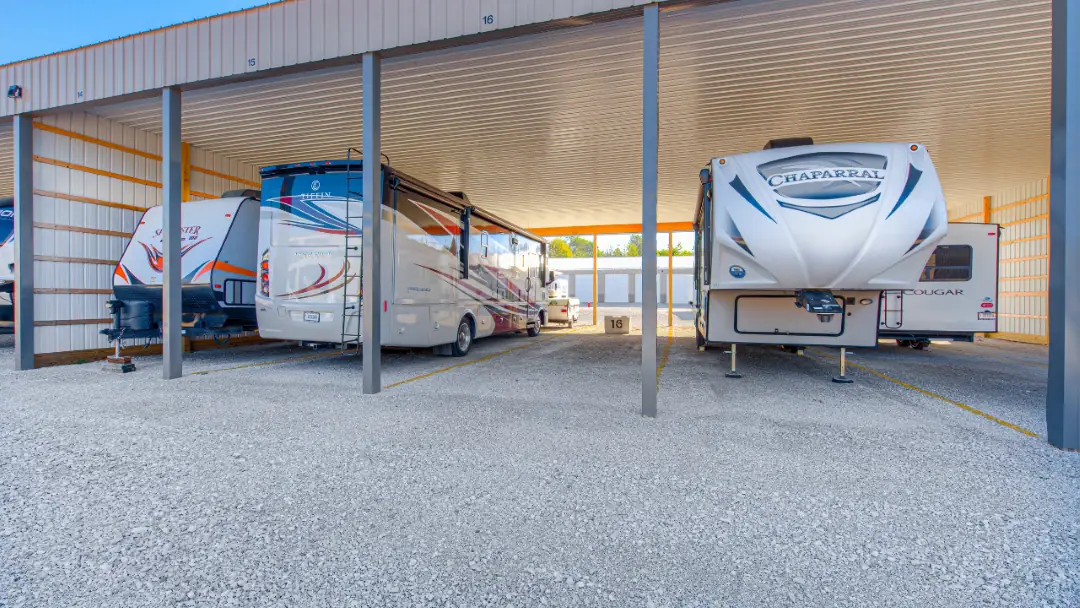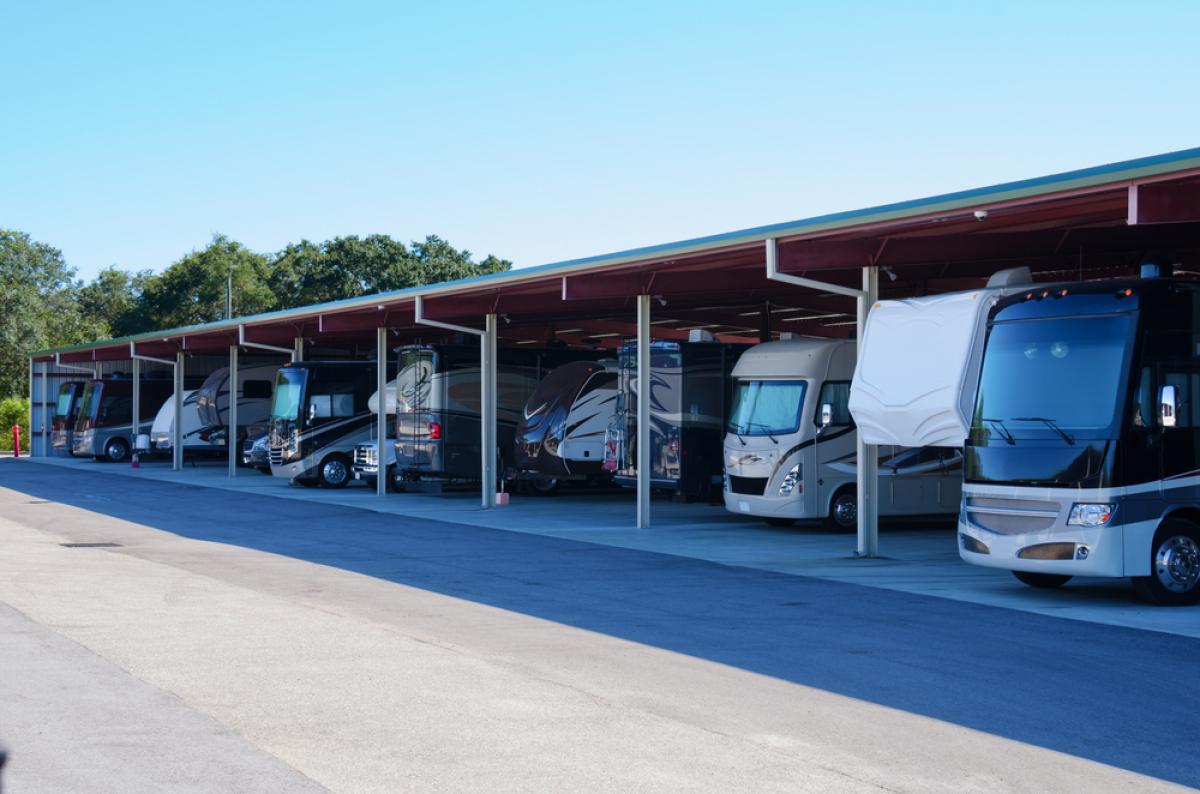Are you considering entering the lucrative world of RV storage? As the demand for recreational vehicles (RVs) continues to grow, starting an RV storage business can be a rewarding venture. In this guide, we’ll walk you through the essential steps and provide expert insights on how to launch and manage a thriving RV storage business.
1. Understanding the RV Storage Business
Before diving into the business, it’s crucial to have a clear understanding of the RV storage industry. RV owners often face challenges finding suitable storage options, especially during the off-season or when they’re not on the road. This presents a significant opportunity for entrepreneurs to provide secure and convenient storage solutions.
2. Market Research and Location Selection
Market Research: Start by conducting thorough market research. Analyze your local area to identify the demand for RV storage. Understanding your target market’s needs and preferences will help you tailor your services accordingly.
Location Selection: The success of your RV storage business greatly depends on the location. Look for a site that is easily accessible and offers security features such as fencing, surveillance, and controlled access. Proximity to highways or popular RV destinations can also be a significant advantage.

3. Business Plan and Legal Requirements
Business Plan: Develop a comprehensive business plan outlining your business goals, budget, and marketing strategies. A well-structured plan will guide your business operations and help secure financing if needed.
Legal Requirements: Ensure you comply with all local, state, and federal regulations. This may include permits, zoning requirements, and insurance coverage. Consulting with a legal expert can be beneficial to navigate the legal landscape.
4. Facility Setup and Security Measures
Facility Setup: Invest in a secure, well-maintained facility with ample parking spaces and clear signage. Consider providing additional amenities like dump stations, electricity hookups, and a wash station to attract more customers.
Security Measures: Implement robust security measures, including surveillance cameras, access control systems, and well-trained staff. RV owners prioritize the safety of their vehicles, so offering a secure storage environment is essential.
5. Pricing and Services
Pricing: Determine competitive pricing for your RV storage services. Research what other facilities in your area charge and adjust your rates accordingly. Consider offering discounts for long-term contracts or package deals.
Services: Think about additional services that can differentiate your business. These could include maintenance, RV washing, or even concierge services. Providing more than just storage can help attract and retain customers.
6. Marketing and Promotion
Online Presence: Establish a professional website and use search engine optimization (SEO) techniques to ensure potential customers can find your business online. Utilize social media platforms to engage with your audience and showcase your facility.
Networking: Connect with local RV clubs and associations. Attend RV shows and events to network with potential customers and generate leads. Word-of-mouth referrals can be a powerful marketing tool in this industry.
7. Insurance and Liability Coverage
Make sure to have comprehensive insurance coverage for your business. This includes liability insurance in case of accidents or damages to stored RVs. Consult with an insurance specialist to determine the appropriate coverage for your specific needs.
8. Customer Service and Management
Outstanding customer service is key to success in the RV storage business. Respond promptly to inquiries, address customer concerns, and maintain a friendly and professional attitude. Invest in user-friendly management software to streamline operations and enhance the customer experience.
9. Expansion and Future Growth
As your business grows, consider expanding your storage capacity and services. Keep an eye on industry trends and customer feedback to adapt and meet evolving demands. Expanding your facility or opening additional locations can be a viable strategy for long-term success.

What are the common security measures for RV storage facilities? Security measures typically include surveillance cameras, gated access with electronic keypads, on-site personnel, and well-lit premises. These precautions help ensure the safety of stored RVs.
How do I determine the right pricing for my RV storage business? Research your local market and competitor pricing to determine a competitive rate. Consider factors like location, facility amenities, and the level of security you offer. Offering discounts for long-term commitments can also attract customers.
Can I offer additional services besides RV storage? Yes, offering additional services such as maintenance, RV washing, or concierge services can set your business apart. These extra offerings can attract more customers and provide added value.
What legal requirements should I be aware of when starting an RV storage business? Legal requirements can vary by location but typically include zoning permits, insurance, and compliance with local regulations. It’s advisable to consult with legal experts to ensure full compliance with all relevant laws.
Conclusion
Starting an RV storage business can be a lucrative venture, especially in regions with a high demand for secure storage options. By understanding the industry, conducting thorough market research, and providing top-notch services, you can create a successful and sustainable business in the world of RV storage. Remember to focus on location, security, and customer service, and be prepared to adapt and grow with the evolving needs of RV owners. With dedication and a solid plan, you can thrive in this exciting and ever-expanding industry. Good luck with your RV storage business journey!

